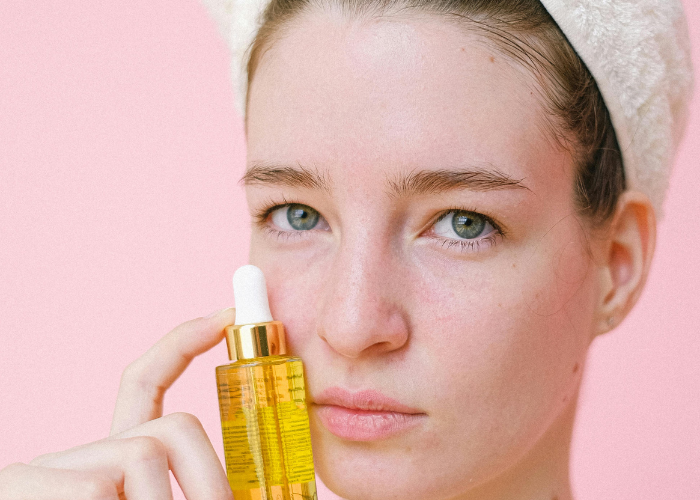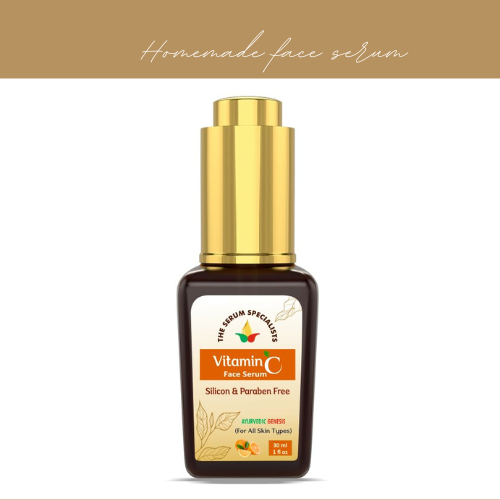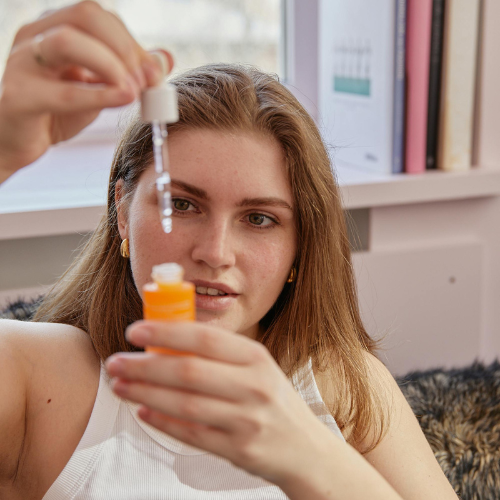In a world where skincare routines often come with hefty price tags and long lists of unpronounceable ingredients, the allure of homemade face serum is growing stronger. Creating your own face serum not only allows you to customize it to your skin’s needs but also ensures that you’re using pure, natural ingredients. Here’s a comprehensive guide to crafting your own unique face serum at home.

Benefits of Homemade Face Serums
- Customization: Tailor your serum to address specific skin concerns such as dryness, acne, aging, or hyperpigmentation.
- Natural Ingredients: Control what goes into your serum, avoiding harmful chemicals and synthetic fragrances.
- Cost-Effective: Save money by using high-quality ingredients that offer multiple applications.
- Freshness: Create small batches to ensure that your serum is always fresh and potent.
Key Ingredients for a Homemade Face Serum
1. Carrier Oils
Carrier oils are the base of any good serum. They dilute essential oils and provide their own skin benefits.
- Jojoba Oil: Mimics the skin’s natural sebum, making it excellent for all skin types.
- Rosehip Oil: Rich in vitamins A and C, great for anti-aging and brightening.
- Argan Oil: Packed with vitamin E and fatty acids, ideal for moisturizing and healing.
2. Essential Oils
Essential oils add potent properties to your serum but should be used sparingly and with caution.
- Lavender Oil: Calming and anti-inflammatory, suitable for all skin types.
- Tea Tree Oil: Antimicrobial properties make it perfect for acne-prone skin.
- Frankincense Oil: Helps with cell regeneration and can reduce the appearance of scars and wrinkles.
3. Additional Ingredients
These can be added for extra benefits and to target specific skin concerns.
- Vitamin E Oil: Antioxidant that helps prolong the shelf life of your serum and promotes skin healing.
- Aloe Vera Gel: Adds hydration and soothes irritated skin.
Basic Recipe for a Homemade Face Serum
THE SERUM SPECIALISTS Vitamin C Face Serum

- Dark Spots Reduction & Provides Moisturization
- Glowing & Brightening Skin
- 100% Vegan All Skin Types
- Vitamin C decreases hyperpigmentation and dark spots, resulting in a brighter, more uniform skin tone.
Ingredients:
- 2 tablespoons of carrier oil (e.g., jojoba or rosehip oil)
- 5-10 drops of essential oil (e.g., lavender or tea tree oil)
- 1 teaspoon of vitamin E oil
Instructions:
- Sterilize Your Tools: Ensure that all tools and containers are clean and sterilized to prevent contamination.
- Mix the Ingredients: In a small glass dropper bottle, combine the carrier oil, essential oils, and vitamin E oil.
- Shake Well: Secure the dropper lid and shake well to mix all ingredients thoroughly.
- Label and Store: Label your bottle with the date and ingredients, then store it in a cool, dark place.
Application Tips
- Patch Test: Always do a patch test before applying a new serum to your face to ensure no allergic reactions occur.
- Use Sparingly: A few drops are usually enough. Apply to clean, damp skin for better absorption.
- Consistency is Key: Use your homemade serum daily as part of your nighttime routine for best results.
Customizing Your Serum
- For Dry Skin: Add more moisturizing oils like avocado or sweet almond oil.
- For Oily Skin: Use lighter oils like grapeseed or hemp seed oil.
- For Anti-Aging: Incorporate oils high in antioxidants, such as pomegranate seed oil or carrot seed oil.
Final Thoughts
Creating a homemade face serum is a satisfying and empowering way to take control of your skincare routine. By using natural, high-quality ingredients tailored to your specific skin needs, you can achieve a radiant, healthy complexion without the need for expensive commercial products. Start experimenting with different combinations to find your perfect blend and enjoy the journey to glowing skin.
Remember, the beauty of homemade skincare is its flexibility. As you learn more about what your skin loves, you can tweak your formulas and discover the perfect, personalized potion for a radiant, healthy glow.

